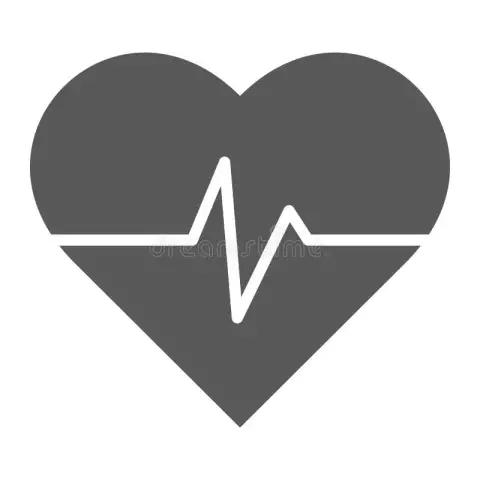- Author Rachel Wainwright wainwright@abchealthonline.com.
- Public 2023-12-15 07:39.
- Last modified 2025-11-02 20:14.
What should be the normal human pulse

The human pulse is a fluctuation in the volume of blood vessels caused by the contraction of the heart muscle. Pulse fluctuations are caused by the pressure in the blood vessels during one cardiac cycle, which manifests itself in the form of blows when palpating large vessels. A normal healthy person has a normal heart rate of 60-80 beats per minute. As a rule, the pulse is measured in a horizontal position, preferably in the morning, since throughout the day a person's heart rate may vary.
It should also be noted that a person's normal heart rate may vary depending on age. So, in a newborn baby, the pulse rate is about 140 beats per minute, and in an elderly person, the normal pulse is about 65 beats. The highest heart rate is observed in children at an early age - up to seven years. At this age, a person's pulse rate of up to 100 beats per minute is considered the norm.
But the lowest heart rate is observed in the elderly. Also, doctors have found that shortly before death, the pulse can increase to 160 beats per minute.
How to determine the normal pulse of a person?
It will not be superfluous to note the fact that each person has his own normal pulse. Many factors affect the heart rate: general health, adherence to sports, the presence of heart disease (tachycardia, arrhythmia), etc. Therefore, to determine your normal heart rate, you must follow the following rules:
- The pulse should be measured early in the morning, immediately after waking up;
- It is necessary to find a point on the inside of the wrist where you can clearly hear the blows;
- For 30 seconds, the number of heartbeats should be counted, after which the resulting figure should be multiplied by two;
- To determine your normal heart rate with higher accuracy, you need to count your beats for several days in a row. If the pulse rate is about the same every day, this is a normal pulse.
You can track your heart rate changes throughout the day. However, you should not check your pulse immediately after eating, after a bath, drinking alcohol, exercising, or after sunbathing or sitting near heat for a long time.
Normally, a person's pulse indicates the state of his health. If your pulse is even and clear, then everything is in order with your health. In case of deviation from the norm, it is worth taking a closer look at the state of health, and, if necessary, visiting a specialist.
Causes of high heart rate

If your heart rate exceeds 100 beats per minute, this may indicate such diseases: infectious diseases, anemia, collapse, shock, cachexia, intoxication of the body, excessive physical stress, oncology, fever, hyperthyroidism, thyrotoxicosis, myocardial damage. Also, such a high heart rate may be the result of taking certain medications or drinking too much. It should be remembered that in children, a high heart rate (up to 120 beats per minute) is normal.
A high pulse is a rather dangerous condition that can cause complications such as cardiac asthma, acute gastric failure, cerebrovascular accident, sudden arrhythmic shock, so you should not delay visiting a doctor.
Causes of low heart rate
Too low heart rate (less than 60 beats per minute) is also a bad condition called bradycardia, which may indicate the presence of such diseases:
- Nervous diseases;
- Myocarditis;
- Cardiac ischemia;
- Atherosclerosis of the coronary vessels;
- Infections;
- Severe intoxication;
- Postinfarction cardiosclerosis;
- Endocrine system pathology (hypothyroidism);
- Increased intracranial pressure.
It is worth noting that some people have a physiologically low heart rate, which is normal for them. However, predominantly the pulse of a person, the frequency of which is less than 60 beats per minute, should alert the doctor.
Found a mistake in the text? Select it and press Ctrl + Enter.






